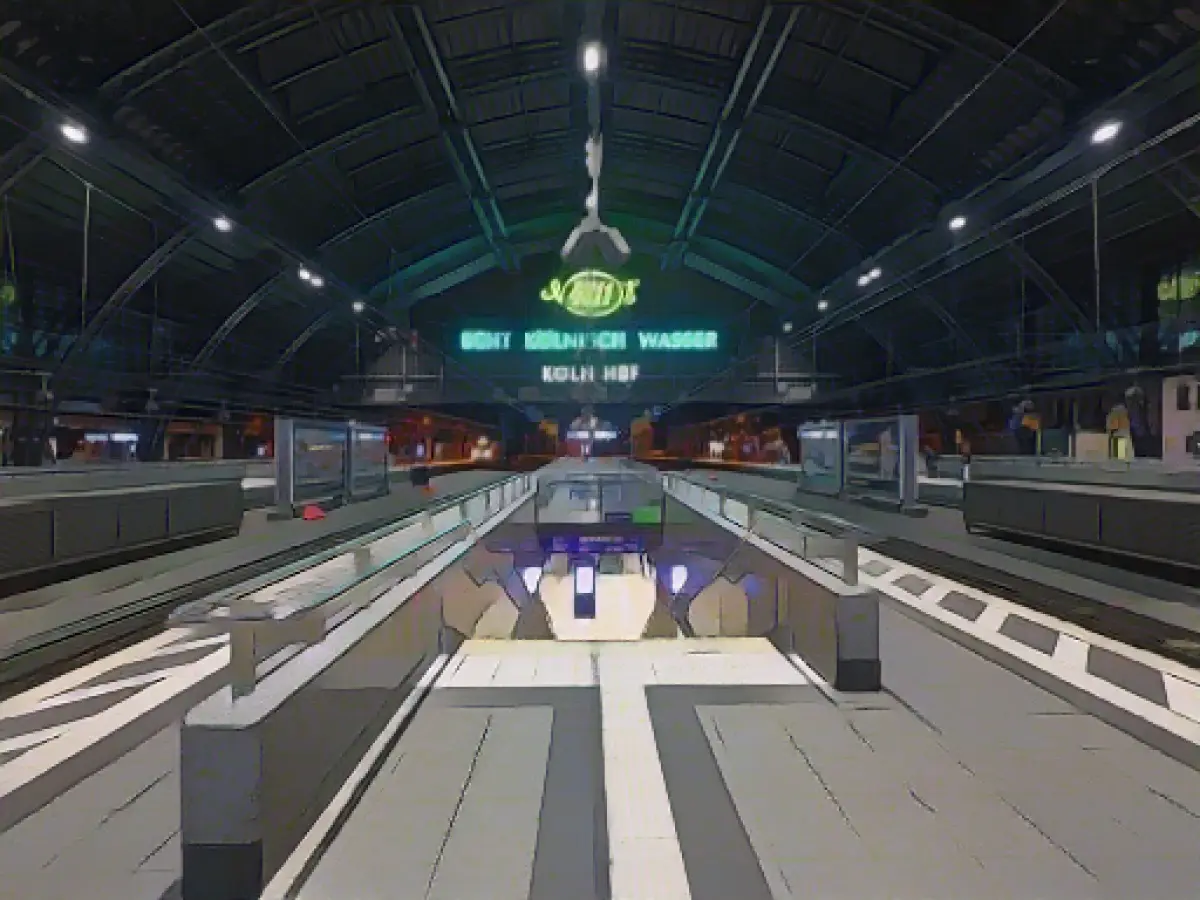Train Woes in NRW: Mass Cancellations Due to Nationwide Strike
Thursday morning saw a wave of train cancellations in North Rhine-Westphalia (NRW), following the nationwide warning strike at Deutsche Bahn. Despite the activation of the emergency plan, disruptions were severe, as confirmed by a railway spokesperson. Apart from long-distance services, regional services and suburban trains also suffered considerable setbacks.
At Cologne Central Station, things were relatively tranquil in the early hours, with the DB information desk empty, according to a dpa photographer. Remarkably, the strike didn't seem to catch anyone off-guard there.
The railway had already issued an emergency timetable the previous day. Many routes had no scheduled trains during the work stoppages, while others offered minimal service. Replacement buses were arranged in certain instances.
The emergency timetable remained in effect until 6 PM due to the GDL's 20-hour warning strike. The GDL called for the strike to emphasize their demand for higher wages and shorter working hours. Deutsche Bahn criticized the strike as unnecessary and additional hardship for passengers.
Competing rail companies like National Express and Eurobahn did not participate in the strike. However, two signal boxes at Bonn-Beuel and Hohenlimburg (Hagen) were unstaffed due to the GDL strike, leading to consequences for other rail companies as well.
Passengers are advised to consult the digital timetable information to ascertain if their train will run. Non-essential journeys are discouraged during the strike, and the mobility guarantee, which usually reimburses cab or car-sharing expenses in cases of delays and cancellations, is inapplicable during the strike.
The GDL's 20-hour warning strike not only impacted Deutsche Bahn's long-distance and regional services but also hampered the operation of signal boxes at Bonn-Beuel and Hohenlimburg, influencing other rail companies. The traffic congestion caused by the strikes exacerbated at various railway stations across NRW.
Enrichment Insights
As the strike unwinds across Germany, rail services might face substantial reductions. For instance, in Berlin, S-Bahn and U-Bahn services operate at only 30% capacity, affecting 390,000 daily commuters instead of the typical 1.3 million. Delays and cancellations are persistently causing inconvenience, with approximately 80% of long-distance and local trains being canceled in Frankfurt, creating major disruptions at major airports like Frankfurt and Munich.
The strike's economic impact is also noteworthy, particularly on local industries like tourism and hospitality. Frankfurt hotels have seen a decrease in bookings of around 25%, while late-minute reservations have spiked by about 30% as business travelers seek flexible alternatives.
The disruption has led to an increased demand for alternative transport solutions such as ride-sharing and taxi services, witnessing a 60% increase in demand. This highlights the flexibleness of public transit habits under disturbed conditions.
In conclusion, while specific details regarding NRW are lacking, the wider impact of the strike on rail services in Germany includes reduced capacity, increased delays and cancellations, and significant economic implications on local industries.








